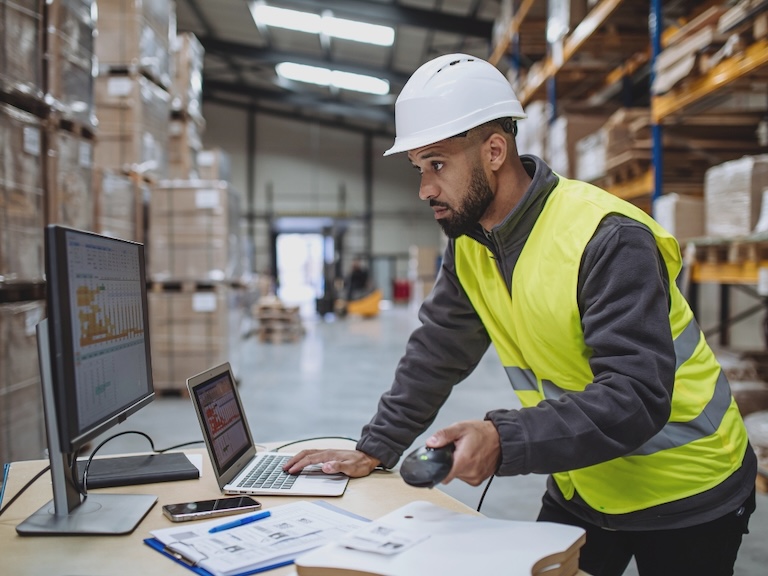How to Choose the Right 3PL Partner for Your Business
Choosing the right third-party logistics (3PL) provider is one of the most important decisions a growing business can make. The right logistics partner can reduce operational costs, improve delivery performance, increase order accuracy, and elevate your customer experience. A poor choice, however, can create inventory issues, delayed shipments, frustrated customers, and unnecessary expenses. Whether you are scaling your ecommerce operations, expanding into new markets, or strengthening your supply chain, it’s essential to evaluate 3PL partners carefully.

1. Understand Your Business Needs
Before you begin searching for a 3PL, take the time to clearly define what your business requires. Think about whether you need traditional warehousing and distribution or a more robust fulfillment solution that covers ecommerce order processing, kitting, bundling, custom packaging, or returns management. Consider your average order volume, seasonal peaks, shipping destinations, and the level of service your customers expect. This clarity will help you narrow down which logistics providers are capable of supporting your current operations and your long-term goals.
2. Look for Industry-Specific Experience
A 3PL provider with experience in your industry offers a meaningful advantage. They already understand the product handling standards, storage requirements, compliance guidelines, and common challenges that businesses like yours face. Their familiarity with your industry allows them to anticipate issues, offer best practices, and provide solutions that are both practical and scalable. When evaluating partners, ask about the types of customers they currently serve, the results they have achieved, and how they have addressed situations similar to yours. A knowledgeable 3PL acts as a true partner—not just a warehouse.
3. Evaluate Their Technology and Integrations
Today’s supply chain depends heavily on technology. A modern 3PL should offer real-time inventory visibility, accurate tracking of inbound and outbound orders, automated reporting tools, and seamless integrations with ecommerce platforms and ERP systems. Strong technology ensures that your inventory levels are accurate, your orders flow smoothly, and your customers receive timely and reliable information about their shipments. A tech-driven 3PL reduces manual work, prevents overselling, and helps you make more informed decisions about your operations.
4. Assess Their Network and Scalability
Your logistics partner should have the ability to grow alongside your business. As you expand your product lines, increase your order volume, or enter new geographic regions, your 3PL must be ready to scale with you. Consider their warehouse capacity, labor flexibility, distribution network, and ability to support additional services as your needs evolve. A scalable logistics partner ensures stability and continuity as your business grows, reducing the risk of bottlenecks during busy periods or major transitions.
5. Evaluate Their Communication and Support Style
Communication is one of the most important aspects of a successful 3PL partnership. Pay attention to how quickly they respond, how clearly they explain processes, and how proactively they address issues. A reliable 3PL should provide consistent updates, offer a dedicated point of contact, and collaborate with you on challenges and opportunities. When a logistics partner communicates effectively, daily operations run smoothly, problems are resolved faster, and you gain confidence in the reliability of your supply chain.
6. Consider Cost, but Focus on Overall Value
While pricing will always be part of the decision-making process, it should not be the only factor. The cheapest option may cost more in the long run if accuracy, communication, and service quality are lacking. Instead of focusing solely on price, evaluate the overall value a 3PL brings to your business. This includes reliability, accuracy rates, customer service quality, technology capabilities, and their track record for meeting service-level expectations. A strong 3PL partner helps reduce costly errors and creates long-term efficiencies that outweigh short-term savings.
7. Ask About Their Commitment to Continuous Improvement
The best logistics providers continually refine their processes and invest in better tools, automation, and technology. Ask how they measure success, what performance indicators they track, and how often they review operational results with clients. A 3PL committed to improvement focuses on optimizing your fulfillment workflow, reducing costs, and improving accuracy and speed over time. This commitment ensures that your operations evolve alongside changes in the market and your own business demands.

Final Thoughts
Selecting a third-party logistics provider is more than choosing a warehouse—it's choosing a long-term operational partner that will influence your efficiency, customer satisfaction, and growth potential. By understanding your needs, assessing industry expertise, reviewing technology capabilities, evaluating communication quality, and focusing on overall value, you can confidently select a 3PL that strengthens your supply chain. With the right logistics partner, your business gains a competitive advantage through faster shipping, lower fulfillment costs, and a smoother, more reliable operation.
 Skip to main content
Skip to main content
